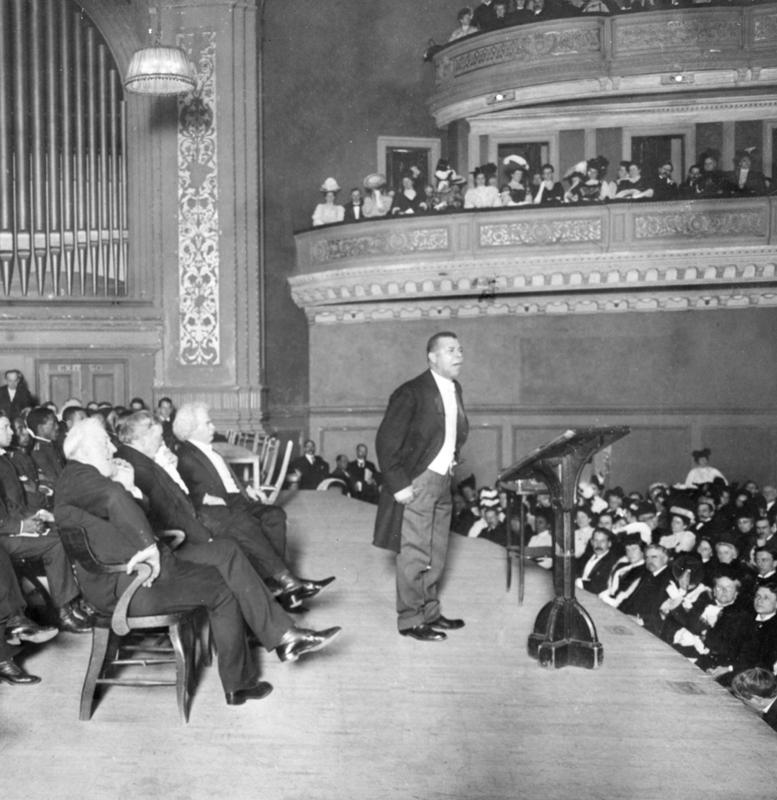Slavery was an institution that left a major mark on American history for the worse. Following the Emancipation Proclamation and the passing of the thirteenth amendment, the country was slated to move away from this dark point in our own history and pave the way for a better future. Unfortunately, the prejudices that had developed and festered for centuries didn’t go away overnight—and so, the discrimination against the African American people continued throughout the nineteenth century (Foner 84). With newfound rights and new possibilities, however, these men and women began an uphill battle against ignorance and prejudice for equality with the white man who had oppressed them for so long.
A noteworthy figure in this battle was Doctor Booker T. Washington (pictured above), a man who accounted his experiences with the “peculiar institution” and the struggle to develop a new identity as an American citizen. In his autobiography, titled Up from Slavery, Washington aptly describes the experiences that came from such an upbringing: “From the time that I can remember anything, almost every day of my life had been occupied in some kind of labour; though I think I would now be a more useful man if I had had time for sports”. This kind of upbringing is one that nobody should have to endure, yet for the formerly enslaved people it was viewed as simply their life’s purpose. After emancipation, however, African American life was still a struggle against prejudice.
Nowhere can this be seen more than in the Reconstruction’s social climate. Representatives of the Black communities, particularly in the political landscape, were often more obsessed with civil rights legislation than they were with more common concerns at the time, such as the “all-important questions of land and labor” (Foner 88). Furthermore, the formerly enslaved people were reliant on the government to provide for them, as they had done during the initial emancipation. When discussing the challenges of establishing an education system for African Americans, Washington brings up the following:
During the whole of the Reconstruction period our people throughout the South looked to the Federal Government for everything, very much as a child looks to its mother. […] Even as a youth, and later in manhood, I had the feeling that it was cruelly wrong in the central government, at the beginning of our freedom, to fail to make some provision for the general education of our people in addition to what the states might do, so that the people would be the better prepared for the duties of citizenship. (Up from Slavery)
The government was unhelpful when the African Americans actually needed them, and abandoned them to fend for themselves and figure out how to meet the expectations that come from being an American citizen. Overall, while Reconstruction did improve some aspects of life for the Black community, the movement was more realistically one step forward and two steps back.
Works Cited
Foner, Eric. “Reconstruction Revisited.” Reviews in American History, vol. 10, no. 4, 1982, pp. 82–100. JSTOR, https://doi.org/10.2307/2701820. Accessed 16 Apr. 2024.
Washington, Booker T. Up from Slavery: An Autobiography. Project Gutenberg, 29 October 2019, https://www.gutenberg.org/cache/epub/2376/pg2376-images.html. Accessed 16 April 2024.


